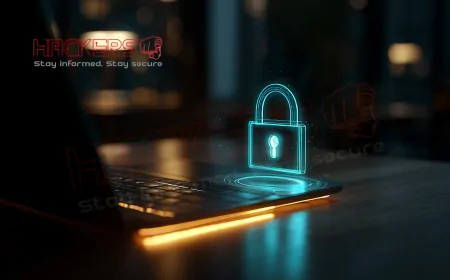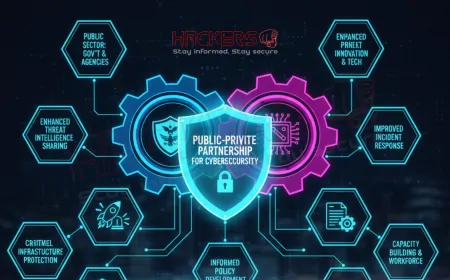How PCI / Project Work Enhances Learning in B.Sc Cyber Security Courses in Pune Colleges
Imagine a classroom where students aren't just listening to lectures on cyber threats but are actively building tools to detect them. In Pune's bustling colleges, this isn't a dream: it's the reality of project-based learning in B.Sc. Cyber Security programs. As digital dangers like data breaches and phishing scams multiply, education must evolve beyond theory. Here, PCI, or Project Credit Internship, plays a starring role under the National Education Policy 2020. It combines hands-on projects, real-world internships, and credit-earning experiences to make learning stick. For beginners, PCI means turning abstract ideas, like securing a network, into tangible skills through guided work. Pune, with its IT hubs and top institutions like Nowrosjee Wadia College and Pimpri Chinchwad University, leads this shift. This blog uncovers how PCI transforms cyber security courses, fostering innovation and employability. We'll explore its structure, benefits, and student stories, showing why it's a game-changer for aspiring digital defenders.

Table of Contents
- Understanding NEP 2020 and PCI in Undergraduate Programs
- Cyber Security Education in Pune: An Overview
- The Role of PCI in B.Sc. Cyber Security Curricula
- Types of Projects in Pune's Programs
- Internships: Bridging Classroom and Industry
- Key Benefits of PCI for Students
- PCI in Action: Examples from Pune Colleges
- Student Experiences and Success Stories
- Comparison Table of PCI Implementation
- Challenges and Future Outlook
- Conclusion
- Frequently Asked Questions
Understanding NEP 2020 and PCI in Undergraduate Programs
The National Education Policy 2020 marks a bold step for India's higher education, shifting from rote learning to skill-based, flexible curricula. At its core is the multiple entry and exit system for undergraduate degrees, allowing students to earn certificates after one year, diplomas after two, and full degrees after three or four. For four-year programs, an honors option adds research depth. This policy emphasizes practical exposure, making PCI a cornerstone.
PCI stands for Project, Credit, and Internship, a framework that integrates hands-on work into academics. Projects let students apply concepts to real problems, like designing a secure app. Credits reward this effort, counting toward the degree. Internships provide industry immersion, often 120 hours or more. Together, they build a portfolio showcasing skills to employers.
For beginners, NEP 2020 means no more cramming facts: it's about understanding and doing. In cyber security, where threats like malware evolve daily, PCI ensures relevance. Pune colleges, affiliated with Savitribai Phule Pune University, adopt this swiftly, blending it with Choice Based Credit Systems. This setup promotes multidisciplinary learning, pairing cyber topics with ethics or data science. As India aims for a skilled workforce, PCI equips students to tackle global challenges, from protecting banks to investigating hacks. It's not just policy: it's preparation for a digital-first world.
The policy's impact is already visible. With flexible exits, students can pivot careers early, while credits transfer across institutions. In practice, PCI encourages innovation, like group projects on AI-driven threats. This holistic approach fosters critical thinking, essential for cyber pros who must anticipate risks.
Cyber Security Education in Pune: An Overview
Pune, the Oxford of the East, thrives as an education and IT powerhouse. Home to over 100 engineering colleges and tech parks like Hinjewadi, it offers ideal ground for cyber security programs. B.Sc. courses here, typically three to four years, cover basics like networks, which connect devices, to advanced forensics, investigating digital crimes.
Key players include Nowrosjee Wadia College's B.Sc. in Cyber Security and Digital Forensics, emphasizing NEP-aligned skills. Pimpri Chinchwad University focuses on computing with security, while Suryadatta International Institute prepares for ethical hacking roles. These programs, under SPPU, blend theory with labs, but PCI elevates them by mandating practicals.
Admission requires 12th science with math, with intakes around 80 seats. Fees range from Rs. 90,000 to 1,10,000 yearly, affordable for many. Pune's ecosystem shines: internships at Infosys or Deloitte turn learning real. For newcomers, courses start simple, explaining terms like encryption, data scrambling for safety.
The city's vibe adds value. Workshops and seminars keep curricula fresh, addressing threats like ransomware. With NEP, programs now include value-added modules, but PCI ties it all with actionable experience. Graduates enter a market needing 1 million pros by 2025, making Pune a launchpad.
The Role of PCI in B.Sc. Cyber Security Curricula
PCI weaves seamlessly into B.Sc. cyber security, appearing from second year onward. Projects, often 4-6 credits, involve solving security puzzles, like vulnerability scans. Internships, 2-4 credits, place students in firms for on-job training. This structure, per NEP, ensures 20-30% of credits from practicals.
In curricula, PCI links subjects. A network security class leads to a project securing a mock system, followed by internship feedback. This cycle reinforces learning: theory informs projects, experience refines theory.
For Pune programs, PCI addresses skill gaps. Students learn tools like Wireshark for traffic analysis through projects. Evaluation includes reports and presentations, building communication. It's inclusive, allowing group work for diverse strengths.
Overall, PCI makes education dynamic. Instead of exams alone, success comes from creating solutions, mirroring jobs where pros build defenses daily.
Types of Projects in Pune's Programs
Projects vary, keeping learning engaging. Mini-projects in early semesters, like coding a password checker, build basics. Major ones in later years tackle complex issues, such as blockchain for secure voting.
- Field Projects: Real-world applications, like assessing a local firm's risks.
- Research Projects: Exploring AI in threat detection, often for honors.
- Group Projects: Collaborative defenses against simulated attacks.
- Capstone Projects: Integrating all skills into a full security audit.
At Nowrosjee Wadia, third-semester projects tie to networks, using C for tools. SIICS emphasizes forensics projects, recovering mock evidence. These foster creativity, turning students into innovators.
Guidance from faculty ensures feasibility. Tools like Python for scripting make it accessible. Projects culminate in demos, honing presentation skills vital for careers.
Internships: Bridging Classroom and Industry
Internships, PCI's practical arm, immerse students in workplaces. Typically 120 hours, they occur in summers or semesters, at firms like TCS. Tasks range from monitoring alerts to assisting audits.
For beginners, structured programs ease entry. Mentors explain roles, like incident response to breaches. Pune's IT scene offers variety: banks for compliance, startups for agile security.
Benefits include networking and resumes. Many convert to jobs, with 80% placement rates at Indira College. Challenges like remote work are met with virtual options. Internships validate theory, showing how class projects apply in chaos.
Key Benefits of PCI for Students
PCI's advantages are clear. It boosts retention: doing beats reading. Projects clarify concepts, like cryptography through encoding apps.
- Employability: Portfolios impress recruiters, leading to 7-12 LPA starts.
- Skill Development: From coding to ethics, it covers all.
- Confidence: Tackling real problems builds self-assurance.
- Innovation: Encourages novel solutions, like eco-friendly security.
In Pune, PCI aligns with demands, preparing for roles like analysts. It promotes equity, with group work aiding diverse learners.
PCI in Action: Examples from Pune Colleges
Nowrosjee Wadia integrates PCI with field projects in third semester, like internet security audits. PCU emphasizes research internships, partnering with IT firms.
SIICS offers forensics-focused projects, simulating investigations. Indira College ties PCI to placements, with 120-hour stints. These examples show PCI's adaptability, enhancing unique strengths.
Student Experiences and Success Stories
Take Aryan from Wadia: his project on malware detection led to a Deloitte internship. "PCI made theory real," he says.
Mia at PCU built a threat app during honors, now a startup co-founder. "Internships showed industry gaps I filled."
These tales inspire, proving PCI sparks careers.
Comparison Table of PCI Implementation
Here's a table comparing PCI across colleges.
| College | Project Credits | Internship Hours | Key Focus |
|---|---|---|---|
| Nowrosjee Wadia | 4-6 | 120 | Field Projects, Forensics |
| PCU | 6 | 120+ | Research, Hacking |
| SIICS | 4 | 100 | Crime Investigation |
| Indira College | 5 | 120 | Placements, Ethics |
Challenges and Future Outlook
PCI faces hurdles like resource needs for projects. Rural access lags, but online tools help. Future? More AI integration, global partnerships. Pune leads, promising skilled grads.
Conclusion
PCI revolutionizes B.Sc. Cyber Security in Pune, blending projects and internships for deep learning. From Wadia's audits to PCU's research, it builds pros. As NEP evolves, PCI ensures relevance, preparing students for secure futures. Embrace it for a rewarding path.
Frequently Asked Questions
What is PCI in NEP 2020?
Project, Credit, Internship: practical components earning degree credits.
How does PCI fit B.Sc. Cyber Security?
Through security projects and industry stints.
What projects are common?
Malware detection, network audits.
Are internships mandatory?
Yes, around 120 hours.
Which colleges use PCI well?
Wadia, PCU, SIICS.
Does PCI help jobs?
Yes, boosts placements.
What credits for PCI?
4-6 for projects, 2-4 for internships.
Is group work in projects?
Often yes, for collaboration.
Can beginners handle PCI?
Yes, starts simple.
What tools in projects?
Python, Wireshark.
How evaluated?
Reports, presentations.
PCI duration?
From second year.
Internship partners?
TCS, Deloitte.
PCI for honors?
Enhances research.
Challenges in PCI?
Resources, access.
Future of PCI?
AI, global ties.
Fees include PCI?
Yes, part of program.
PCI vs theory?
PCI adds practice.
Student feedback?
Positive, career-boosting.
Why Pune for PCI?
IT hub, strong programs.
What's Your Reaction?










































































